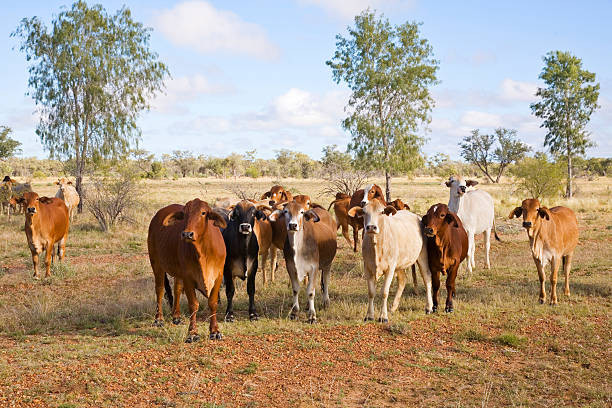On The Land
5 May, 2022
Concerns over cattle shooting
MORE than 5000 cattle have been shot in Cape York over the past three years on orders from the Department of Environment and Science and it must stop, says Member for Hill Shane Knuth.

MORE than 5000 cattle have been shot in Cape York over the past three years on orders from the Department of Environment and Science and it must stop, says Member for Hill Shane Knuth. Mr Knuth said Queensland Parks and Wildlife Service had been performing shoot-to-kill operations for years, indiscriminately killing unbranded and branded cattle, often without any, or little, notice to surrounding landowners who own most of the cattle.
“The department needs to communicate with landowners, who are rarely notified and often held up by government bureaucracy, sometimes waiting up to 50 days before they can obtain a permit to collect their branded cattle from national parks,” Mr Knuth said. “Cattle are continually shot before landowners are given permission to enter parks to muster their cattle, which is a huge economic loss to the region.”
He said over the past three years more than 5,000 cattle, which could be worth more than $6m in today’s market, have been shot on orders from the department. “The question is, why are neighbouring properties to Cape York National Parks given only one week’s notice, or no notice before the killing of cattle occurs?” he said. “And when adequate notice is given, it’s always during the wet season when it is far too difficult and dangerous to muster cattle. “It is quite obvious that this government wants to drive pastoralists out of the region, so they can lock it up to meet their environmental agenda.
“I call on the Minister to fix this longstanding issue, streamline the permit process, instruct the department to give adequate notice and work with landowners to muster valuable cattle, instead of destroying this income stream.” But the department maintains landowners are given plenty of notice to remove straying cattle. “When cattle are left to wander inside national parks, they present a risk to public safety and they can do incredible harm to the environmental and cultural values of the park, especially if left unmanaged,” the spokesperson said.
“Landowners bordering the national parks are an essential contributor to the cattle removal process and are provided ample opportunity to retrieve their stock through a phased mustering stage. “They are given plenty of notice about the planned control program to ensure their stock are safely behind boundary fences by a specific date. “When that specific date is nearing, landowners are advised that aerial operations are about to commence.”
But Sally Witherspoon, who has been involved in the cattle industry on Cape York for more than 50 years, (and still runs cattle on a northern Peninsula sub-lease) says the actions sanctioned by the department are “putting the final nail in the coffin of the beef industry” in North Queensland. “There is a ridiculous rule that you must contact Queensland Parks and Wildlife Service 40 days before submitting a Permit to Muster application,” Ms Witherspoon said. “The application takes time to be assessed and could then be denied for some reason.
For example, too late in the season for a muster. “National Parks should not be purchased unless there are funds to fully fence and maintain the park. “They are the worst neighbours one could wish for with little to no weed control, no fences, nobody living on the property, little firefighting capability, and a propensity to shoot cattle. “Shooting from a helicopter is often not humane and it is distressing to think our cattle are being cruelly ‘hunted’ and maybe left to die a slow death.
“It is very telling that graziers on Cape York Peninsula and the north-eastern coast of Queensland are being forced out of business in the only areas of Queensland that have guaranteed rainfall.” The department spokesperson says cattle that are not retrieved are considered abandoned, and are humanely euthanised to prevent them from building up numbers again within national parks.
“Operations are conducted by fully qualified professionals who ensure they comply with relevant codes of practice for animal welfare. They also maximise the safety of staff and the public while protecting of the environmental and cultural values of the park.”



